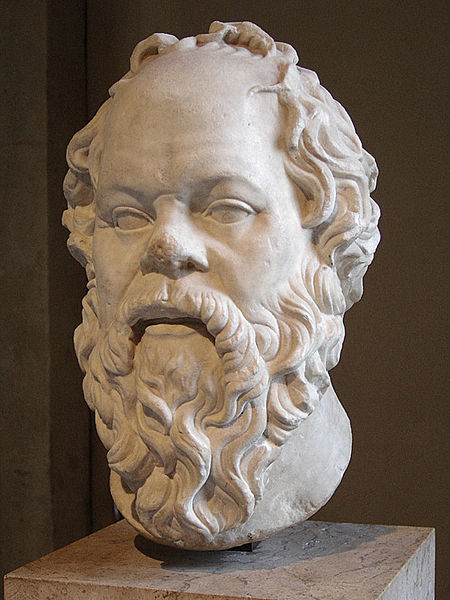
Socrates was a classical Greek Athenian philosopher. He is credited as one of the founders of Western philosophy. Additionally, he is especially known for teaching his students Plato and Xenophon through his schools. Socrates has become renowned for his contribution to the field of ethics and the development of the Socratic method.
Since Socrates did not write philosophical texts, the knowledge of his life and his philosophy is entirely based on writings by his students and contemporaries. Plato, Xenophon, Aristotle, and Aristophanes provided important insights into his life. Plato is frequently viewed as the most informative source about Socrates’ life and philosophy.
Details about Socrates can be found in three contemporary sources. The first two are the dialogues of Plato and Xenophon. The third source are the plays of Aristophanes. Socrates was coined a champion of oral modes of communication and opposed writing anything down.
Socrates married Xanthippe and had three sons with her named Lamprocles, Sophroniscus, and Menexenus. He initially earned his living as a master stonecutter. He took over stonemasonry from his father who was claimed to have cut stones for the Parthenon1.
Socrates served in the Athenian army during three military campaigns at Potidaea, Amphipolis, and Delium. Alcibiades describes Socrates’ valor in the battles of Potidaea and Delium where Socrates saved his life. In the writing Apology, Socrates compares his military service to his courtroom troubles, and says anyone on the jury who thinks he ought to retreat from philosophy must also think soldiers should retreat when it seems likely that they will be killed in battle1.
Socrates’ attempts to improve the Athenian sense of justice may have been the cause of his execution. Socrates was found guilty of both corrupting the minds of the youth of Athens and of impiety (not believing in the gods of the state) and was sentenced to death by drinking hemlock.
Reference:
1. Vlastos, Gregory (1991). Socrates, Ironist and Moral Philosopher. Ithaca: Cornell University Press.
© BrainMass Inc. brainmass.com April 17, 2024, 11:09 pm ad1c9bdddf